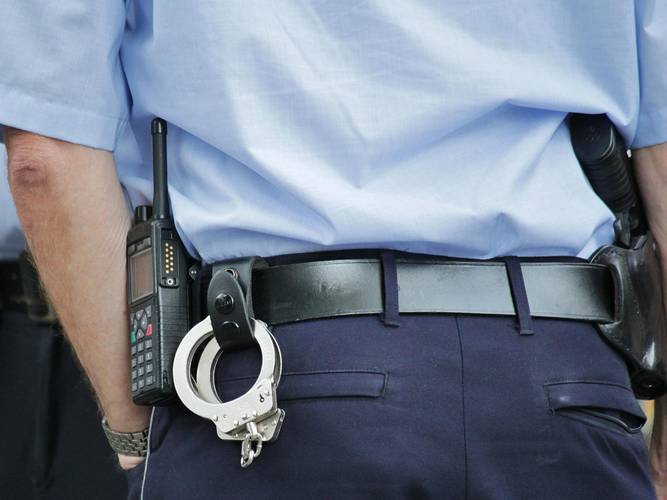When verifying the information in the case in question, the Ombudsman found irregularities in the official note, which is kept chronologically by police officers from the beginning to the end of the detention according to the Manual for Carrying Out Police Detentions. He reminded competent authorities that the official note on the carrying out tasks during detention is an official document. This means that it is subject to a legal presumption that its content is true and that therefore what is not entered in this official note was not carried out, unless it later turns out (which is often difficult or even impossible) that it was. The Ombudsman recommended that during regular training and additional education, police officers should be regularly reminded of the importance of carefully, accurately, and chronologically entering all data in official notes, and if necessary, supplement the manual with more precise instructions in this part.
* * *
The Human Rights Ombudsman of the Republic of Slovenia addressed an inquiry to the Prison Administration of the Republic of Slovenia (URSIKS) in relation to the death of a prisoner. In its response to the inquiry, URSIKS communicated that the detainee had been admitted to the Ig Prison (ZPKZ) from police detention at the Brežice Police Station. She was hungry, because according to her statements, she only received two meals during detention, and she was not given the possibility to take a walk.
The statements of the detainee could not be verified other than by visiting the Brežice Police Station and the Criminal Police Division of the Novo mesto Police Directorate, which ordered the detention. On this basis, the Ombudsman found that the detention of the complainant lasted from 21/11/2022 from 21.47 to 23/11/2022 until 14.00. In the official note on the performance of tasks during detention, it was stated that the detainee was placed in room no. 3, while in the electronic personal phonetic index records, detention room no. 5 was entered. In this official note there is also not recorded that she was offered a cold meal on the evening of her detention, nor the following morning. The first meal she was given was a hot meal the day after her detention at 10:50. That day, she received a dry meal in the evening after returning from the court and a walk. The next morning, she did not receive a dry meal (breakfast) again, however at 10:48 she received a warm meal. She was later taken to court and never returned to the detention facilities. According to the data entered in the official note, complainant was taken to the outdoor area six times, twice of those six times also at night, so the Ombudsman did not detect any violations in this part.
In the inquiry, the Ombudsman reminded the Ministry of the Interior (MNZ) of the obligation to provide all meals detained persons are entitled to on the day of detention (two dry and one warm meal),[2] and requested an explanation why in this case the detained person was not provided with meals, as well as why the number of the detention room in which the detained person was placed differs from the number of the room entered in the personal phonetic index records.
MNZ found that in this detention case, police officers of the Brežice Police Station did not act according to the Manual for Carrying Out Police Detentions, since they did not make any records to the official note on the performance of tasks during detention that the complainant was given a dry meal and also not that she rejected it and that the meal was left for her anyway in the detention room. It also explained that the detainee was actually placed in room no. 3, which is stated in the official note, and the error in the entry of the room number occurred in the personal phonetic index records, which was only discovered after the representatives of the Ombudsman visited the Brežice Police Station and Criminal Police Division of the Novo mesto Police Directorate and was corrected the same day. MNZ did not specifically say how it will be ensured that similar errors will not be repeated.
Taking into account the identified irregularities in this case, the Ombudsman proposed to MNZ that police officers should be regularly reminded of the importance of carefully, accurately, and chronologically entering all data in the official note on carrying out tasks during detention according to point 4.1 of the Manual for Carrying Out Police Detentions (Ljubljana, 2021) and that, if necessary, this part of the manual should also be supplemented with more precise instructions. 16.1-1/2023
[1] Manual of Police Detentions, Ljubljana 2021, point 4.1.
[2] In point 3.7.4., among other things, the manual for the carrying out of police detentions from 2021 stipulates that a person detained for more than 12 hours must be provided with three meals a day (including one hot meal) during normal hours. As a rule, other detained persons are entitled to dry food meals. A rule is also that a police officer must provide persons detained for up to 12 hours with their first dry meal after 4-5 hours of detention, and thereafter every 5 hours. In doing so, the time of day, which is otherwise normal for eating a single meal, and the person's condition are taken into account as much as possible. At night (from 10 p.m. to 7 a.m.), detainees are generally not provided with food if they are resting. The choice of the type of meal and the time of consumption are written down by the police officer in the official note, and they also record if the detained person refuses the food. If, due to prolonged detention, the person receives several meals, the choice and time of each meal must be recorded. The person is kept in the detention area or in another area of the police station, if the conditions allow. If there is no sink in the detention area, the person must be given the possibility to wash their hands before and after eating, and they must be informed that they have 30 minutes to eat the meal.

